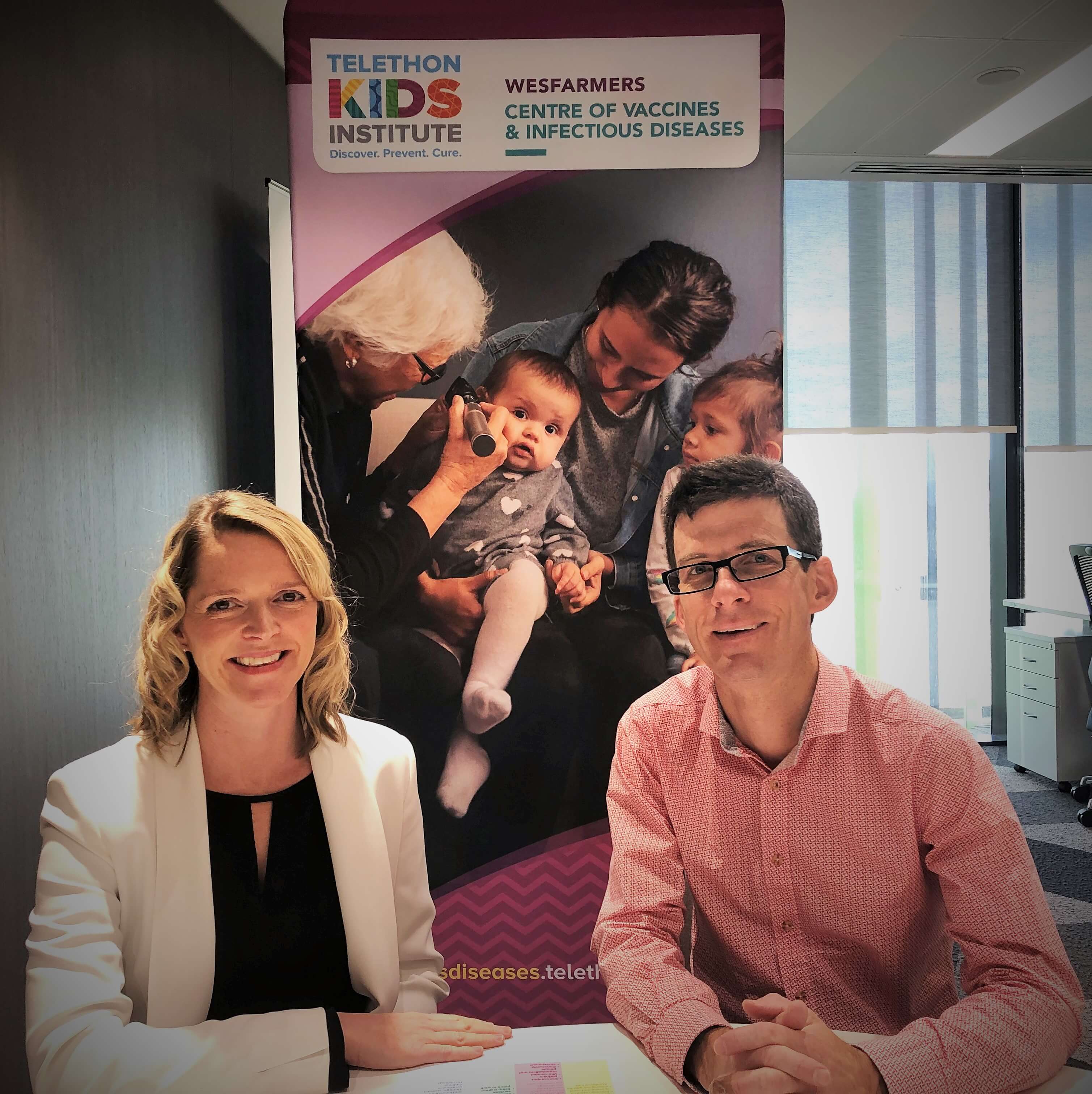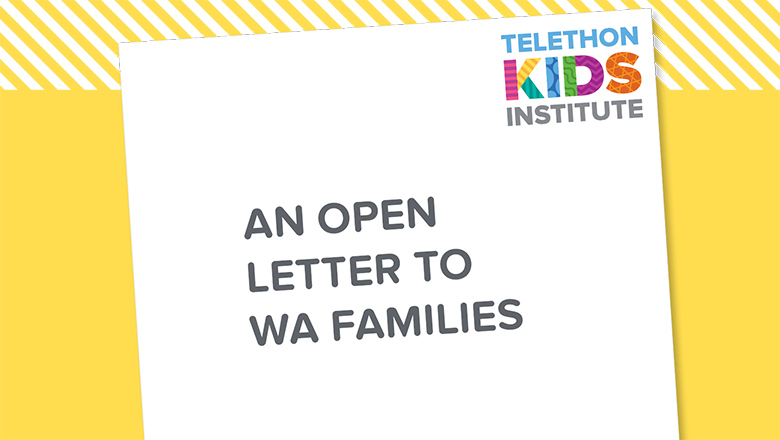Search

News & Events
New Co-directors for the Wesfarmers Centre of Vaccines and Infectious DiseasesDr Lea-Ann Kirkham and Dr Chris Blyth have been appointed as Co-Directors

News & Events
Vaccination Q&A with Dr Chris BlythImmunisation plays an important role in preventing disease within our community. Watch Dr Chris Blyth answer some commonly asked questions about vaccines.

News & Events
An open letter to WA familiesMy colleagues and I at Perth's The Kids Research Institute Australia study how to make current vaccines work better, reduce common side effects, and develop new vaccines.
News & Events
New vaccine may provide broader protection against cervical cancerJust under 150 Perth women have contributed to major international research at the Telethon Institute for Child Health Research.
News & Events
Perth researchers to trial bird flu vaccinePerth researchers have begun a trial to test the effectiveness of a new vaccine to protect against the potentially deadly bird flu.
Research
Position statement of the World Heart Federation on the prevention and control of rheumatic heart diseaseIn the 21st century, rheumatic fever (RF) and rheumatic heart disease (RHD) are neglected diseases of marginalized communities.
Research
Safety and tolerability of a 2009 trivalent inactivated split-virion influenza vaccine in infants, children and adolescentsTo evaluate the safety of CSL's split-virion inactivated trivalent 2009 Southern Hemisphere formulation influenza vaccine (TIV) in children.
Research
TLR3 and RIG-I gene variants: Associations with functional effects on receptor expression and responses to measles viruMeasles virus causes severe morbidity and mortality, despite the availability of measles vaccines. Successful defence against viral pathogens requires early...
Research
Predominance of nontypeable haemophilus influenzae in children with otitis mediaIn Australia the 7-valent pneumococcal conjugate vaccine (PCV7) is administered at 2, 4 and 6 months of age, with no booster dose.
Research
Pneumococcal conjugate vaccination at birth in a high-risk setting: No evidence for neonatal T-cell toleranceConcerns about the risk of inducing immune deviation-associated "neonatal tolerance" as described in mice have restricted the widespread adoption...
